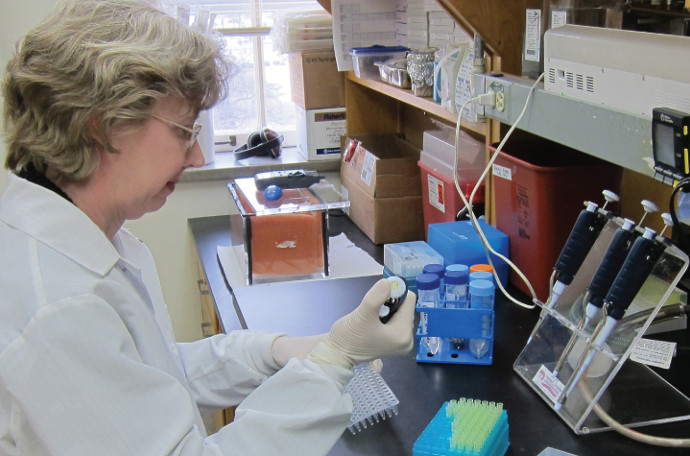2012 Fragile X Research Awards Total $1,132,923
$1,132,923 in New Program Grants, Postdoctoral Fellowships, and Renewals have been approved for the next year. We are funding over $846,000 in new projects; renewals total $285,678 and will increase as additional projects reach their one year mark.
Endocannabinoid Mediated Synaptic Plasticity in Fragile X Mice
With a $90,000 grant from FRAXA Research Foundation over two years, Drs. Olivier Manzoni and Daniela Neuhofer researched the relationship between Fragile X syndrome and the areas of the brain that are involved in reward processing, regulation of emotional behavior and emotional memory as well as attention, planning and working memory.
Read More »Developing IPS cells to Screen Drugs which can Reactivate the FMR1 Gene
With $146,000 grant from FRAXA Research Foundation over 2012-2013, Drs. Anita Bhattacharyya and Xinyu Zhao at the University of Wisconsin developed a new mouse model of Fragile X syndrome which will enable testing of gene reactivation and gene therapy approaches to treatment. They transplanted human Fragile X neural cells differentiated from induced pluripotent stem cells into brains of neonatal mice and then testing for FMR1 reactivation. In 2015, The John Merck Fund assumed support for this work with a generous grant of $750,000 to the scientists. Results published.
Read More »Small Rho GTPases, a Potential Therapeutic Target for Fragile X Syndrome
With $384,345 in grants from FRAXA Research Foundation, Dr. MariVi Tejada from the University of Houston focused on a particularly promising point of intervention in pathways of brain receptors, and tested several potential therapeutic compounds in an attempt to rescue function in the mouse model of Fragile X.
Read More »Evaluation of CamKII Dependent Regulation of mGluR5-Homer Scaffolds as a Potential Therapeutic for Fragile X Syndrome
With a $90,000 grant from FRAXA Research Foundation, Dr. Kimberly Huber and Dr. Weirui Guo at the University of Texas at Southwestern investigated the roles of Homer and CaMKII in Fragile X syndrome.
Read More »Ab-Mediated Translation in Fragile X Syndrome
With a $120,000 grant from FRAXA Research Foundation during 2011-2012, Dr. Cara Westmark at the University of Wisconsin explored the role of AbPP as a potential treatment option for fragile X. AbPP produces b-amyloid which is over-expressed in Alzheimer’s disease (AD) and Down syndrome.
Read More »Synaptic Actin Signaling Pathways in Fragile X
With a $163,356 grant from FRAXA Research Foundation in 2010-12, Dr. Scott Soderling and Dr. Hwan Kim at Duke University bred the standard mouse model of Fragile X syndrome to their lines of mice that express reduced levels of several key proteins that modulate synaptic actin. These compound mutant mice were compared to FXS mice to determine if genetically impairing pathways to the actin cytoskeleton can rescue deficits in the FXS mice.
Read More »Genetic and Pharmacologic Manipulation of PI3K Activity in FXS: Assessing Potential Therapeutic Value
With a $90,000 grant from the FRAXA Research Foundation, Dr. Gary Bassell and his team at Emory University explored the PI3K/mTOR signaling complex in FXS via genetic and pharmacologic rescue approaches, to reduce the enzymatic function of specific components of this complex pathway in an FXS mouse model.
Read More »Reward Function in Fragile X Syndrome
With a $82,500 grant from FRAXA Research Foundation in 2011-2012, Dr. Christopher Cowan and Dr. Laura Smith explored the role of specific signaling pathways in drug-related behavioral deficits, including determining the role, if any, of known impairments in the Fragile X brain.
Read More »A Metabolomic Drug Efficacy Index to Test Treatments in the Fragile X Mouse
Dr. Davidovic has been examining changes in metabolism in various brain regions that are affected in Fragile X patients. She has defined a brain-specific metabolic signature of FXS and is testing treatment strategies to restore normal levels of these metabolites.
Read More »









